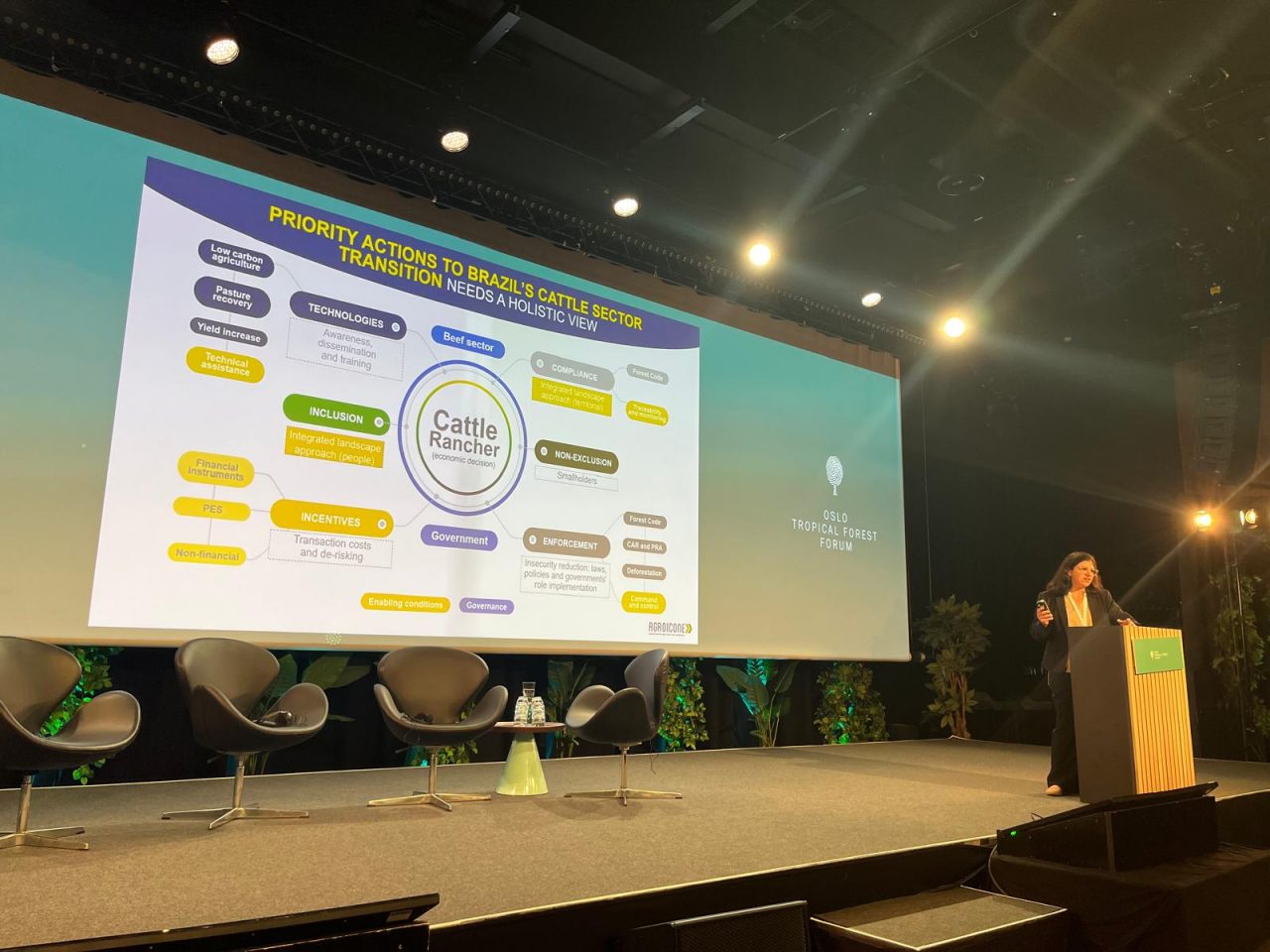The Brazilian Association of Meat Exporting Industries (Abiec) took part on June 25 and 26 in Oslo, Norway, in the Oslo Tropical Forest Forum (OTFF). This is the main global conference on the topic, bringing together political actors, multilateral institutions, the financial sector, civil society, indigenous peoples, and the private sector to seek actions for the protection of tropical forests. The conference is organized by Norad, the Norwegian Agency for Development Cooperation, on behalf of the Norwegian International Climate and Forest Initiative (NICFI). At the invitation of the Tropical Forest Alliance and the World Economic Forum, Abiec participated in a panel at the event, addressing the sustainability and traceability of livestock in the protection of tropical forests in Brazil, and the sector’s transition in this regard.

In addition to Abiec’s Sustainability Director, Fernando Sampaio, the panel included José Octavio Passos from the NGO The Nature Conservancy, Raoni Rajão, Director of Policies for Deforestation and Fire Control at Brazil’s Ministry of the Environment, Leila Harfuch, Managing Partner at Agroicone, Mauro O’de Almeida, State Secretary of Environment and Sustainability for the Government of Pará, Jack Hurd, Executive Director of TFA at the WEF, Toby Gardner, Director of SEI and Trase, Maggie Charnley, Head of the International Forests Unit at the UK Department for Business, Energy and Industrial Strategy, and Alice Gargano, Global Manager of Forests and Lands at Mars Global Petcare.
At Abiec’s point of view, global demand will continue to increase, driven by the rising of the population and income in emerging countries. The challenge is to reconcile the country’s contribution to global food security with actions to mitigate the climate and biodiversity crisis. Brazilian livestock, among the various commodity groups produced in tropical regions, is the most correlated with deforestation, according to the data presented. Following this is Indonesian palm oil.
“Talking about a transition in the Brazilian meat chain means continuing to produce while reducing impact. For this, we need to act, mainly to end illegality and promote the implementation of the Forest Code and have traceability as a tool to add environmental guarantees to the sanitary guarantees in Brazilian meat,” says Fernando Sampaio. On the other hand, says the Director, “we need to promote greater efficiency in production, and we understand the market as a driver of production efficiency. It is because we are part of a global market that our productivity has increased by 183% in the last three decades,” he notes.
Accelerating this transition is the issue. Abiec and Agroicone have been leading a sector consultation and engagement effort to identify priority actions for the transition. Among these are technical assistance, environmental regularization, financing, and inclusion of producers. “Attracting investments for this transition is crucial to ensure increased productivity and reduced emissions in the chain. Today the financial sector has an aversion to the risk represented by Brazilian livestock. This image needs to be undone,” argues Sampaio. Furthermore, he adds, countries and organizations capable of mobilizing public and private finances for forest protection should also help facilitate the transition in livestock production, putting the producer and their needs at the center of discussions.
06.26.2024
Abiec Press
Catarina Guedes – Press Officer
55 (71) 98881-8064
Monise Centurion – Assistant Journalist
55 (17) 99611-8019